Featured cancer research
CIHR and the Institute of Cancer Research (ICR) are dedicated to supporting research to address the growing challenges of cancer on patients, families, caregivers, and healthcare systems. Through avenues of prevention, detection, treatment, and palliation, ICR takes a holistic approach to improving the health and well-being of people living with and beyond cancer. Together, we are making important strides towards a cancer-free world.
| Title |
|---|
 Moving the needle in ovarian cancer research Moving the needle in ovarian cancer researchImproving immunotherapy responses for ovarian cancer |
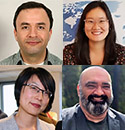 Marking World Cancer Research Day 2024 Marking World Cancer Research Day 2024Celebrating Canada’s contributions to cancer research worldwide |
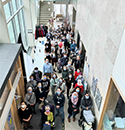 Bringing cancer research from lab bench to bedside Bringing cancer research from lab bench to bedsideCancer research trainees and leading researchers seek to bridge the gap between cancer research and understanding patient needs |
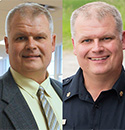 Cancer, Firefighting and Science: Unique Partnerships Cancer, Firefighting and Science: Unique PartnershipsAs a translational cancer researcher, Dr. Jim Petrik at the University of Guelph is investigating how manipulating the tumour microenvironment can enhance the uptake and efficacy of treatments such as chemotherapy, virotherapy, and immunotherapy. |
 Flames and risks: firefighters at risk of cancer and other diseases Flames and risks: firefighters at risk of cancer and other diseasesDrs. Paul Demers, Tracy Kirkham, and Jeavana Sritharan at Ontario Health's Occupational Cancer Research Centre and the University of Toronto's Dalla Lana School of Public Health are seeking to enhance protection for firefighters by assessing the risk of disease and exposure to hazards. |
 Identifying environmental and occupational causes of cancer Identifying environmental and occupational causes of cancerStructural, physical, and chemical exposures of our environment may be beneficial or harmful to our overall health. Because the current evidence to chronicle the potential carcinogenicity of most of these exposures is insufficient, it’s difficult to prevent cancer in the population. |
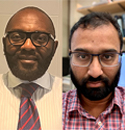 Improving diagnostics and therapeutics for ovarian cancer Improving diagnostics and therapeutics for ovarian cancerThe diagnostic procedure for most cancers focuses on biopsies or serum biomarkers as well as use of imaging techniques such as PET, MRI and/or CT. However, for many cancers this is not proving to be accurate enough. |
 Better access to better biospecimens is needed for better health research Better access to better biospecimens is needed for better health researchBuilding a biospecimen pipeline to drive health research in Canada |
 Precision medicine for the other ovarian cancers Precision medicine for the other ovarian cancersMolecular features of endometriosis-associated cancer can be used to re-classify ovarian cancers and direct management |
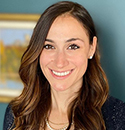 Can we avoid esophagectomy in patients with esophageal squamous cell carcinoma? Can we avoid esophagectomy in patients with esophageal squamous cell carcinoma?Improving quality of life following treatment for esophageal cancer |
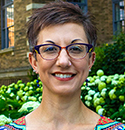 We can’t fix what we don’t understand We can’t fix what we don’t understandUniversity of Toronto researcher aims to understand how structure-selective DNA endonucleases recognize and cleave DNA as a potential therapeutic target for cancer |
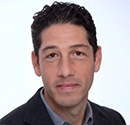 International Pharmaceutical Policy and Drug Access for Children with Cancer International Pharmaceutical Policy and Drug Access for Children with CancerDr. Denburg and his team at the Centre for Global Child Health in SickKids' Research Institute are engaged in projects on cancer drug access in a range of health system settings. The team has also developed the first forecasting model for childhood cancer medicines, which enables evidence-based estimates of drug need and cost by agent and disease in 200 countries worldwide, tailored to childhood cancer demographics, incidence, and treatment protocols. |
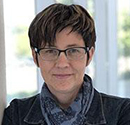 Accessing Care in Northern Communities Accessing Care in Northern CommunitiesTracey Galloway is an Associate Professor with the Department of Anthropology at the University of Toronto-Mississauga. In 2014, Galloway partnered with Dr. Gwen Healey Akearok, Executive Director of the Iqaluit-based Quajiartiit Health Research Centre to undertake a community-based assessment of cancer services in the territory. |
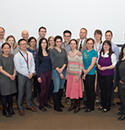 Is it possible to create personalized cancer treatments? Is it possible to create personalized cancer treatments?The team at BC Cancer Agency’s Personalized Onco-Genomics Program is using genomic sequencing and bioinformatics to identify patient-specific treatments for advanced cancers. |
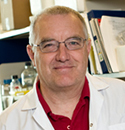 Can the human body cure cancer? Can the human body cure cancer?BioCanRx’s revolutionary network is using biologically-derived materials to boost the immune system and destroy cancer cells. |
 Helping ovarian cancer patients beat the odds Helping ovarian cancer patients beat the oddsDr. Brad Nelson and his team at the BC Cancer Agency are uncovering new forms of treatment that re-enforce the body’s defense mechanisms. |
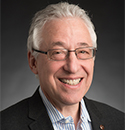 Is the key to curing cancer hidden in our cells? Is the key to curing cancer hidden in our cells?Dr. Gerald Batist is working to learn more about the cellular processes that make certain cancer treatments more effective than others. |
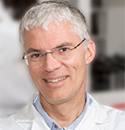 Do stem cells have the power to cure cancer? Do stem cells have the power to cure cancer?Dr. Guy Sauvageau and his team are using stem cell genes to treat acute myeloid leukemia. |
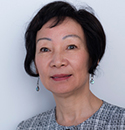 Can we use our immune systems to end cancer? Can we use our immune systems to end cancer?Dr. Li Zhang and her team are discovering healthy cells that have the potential to eliminate cancer cells. |
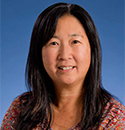 Regulating tumor immunosurveillance: from bench to bedside Regulating tumor immunosurveillance: from bench to bedsideDr. Pamela Ohashi is working to identify ways to bolster our natural anti-cancer immune response with the aim to improve targeted anti-cancer therapies. |
- Date modified: